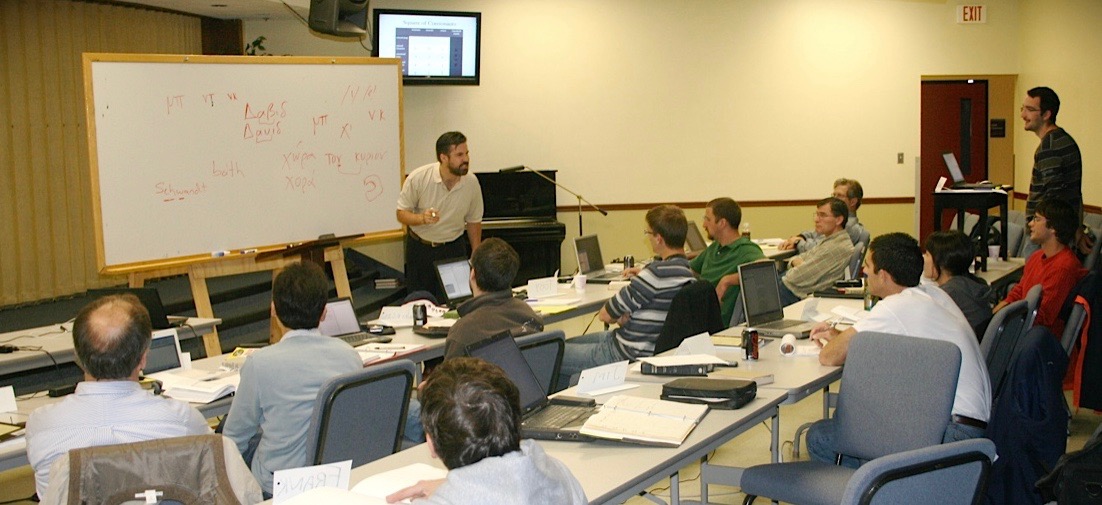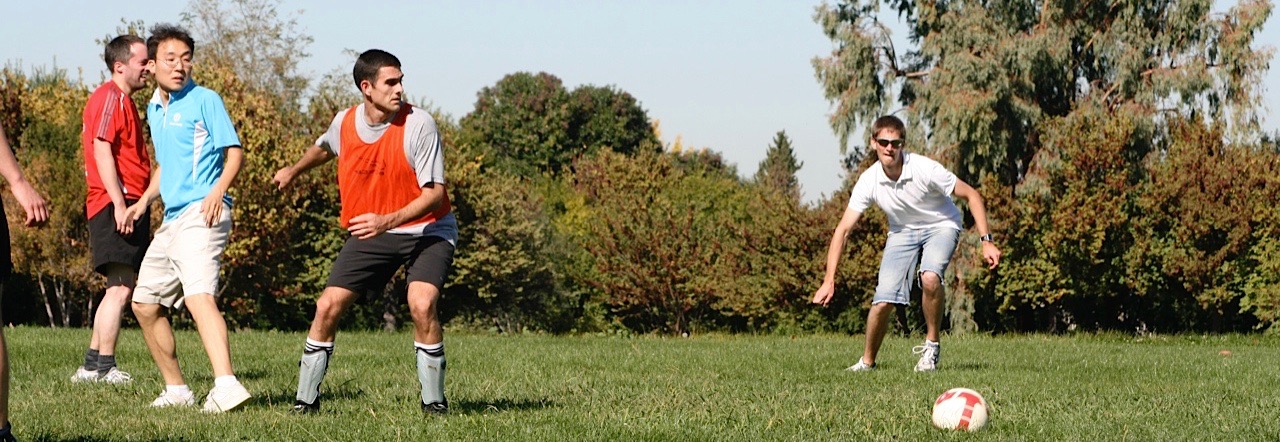Teaching
We hold to the following doctrines
We believe that, like the early church, we should be continually devoting ourselves “to the apostles’ teaching and to fellowship, to the breaking of bread and to prayer” (Acts 2:42).
We believe that being devoted to the apostles’ teaching means faithfully reading and studying the Scriptures. Paul exhorted Timothy, “Be diligent to present yourself approved to God as a workman who does not need to be ashamed, handling accurately the word of truth (2 Timothy 2:15).
We believe that the Holy Spirit is the teacher of the church (John 16:14; Ephesians 6:17; 1 John 2:27). As we walk in the Spirit, He guides each of us toward the true meaning of Scripture. The Holy Spirit also works through those He has gifted as teachers (1 Corinthians 12:28; Ephesians 4:11). Their teaching, however, is imperfect and must be judged by Scripture (1 Corinthians 14:29; 1 Thessalonians 5:21).
We apply these doctrines as follows
Church Based Teaching
The local church is to be a place of teaching, training, service, and spiritual growth. This process is outlined in Ephesians 4:11-16. It states that Christ has given the church “some as apostles, and some as prophets, and some as evangelists, and some as pastors and teachers, for the equipping of the saints for the work of service, to the building up of the body of Christ” (Ephesians 4:11,12). Each Christian is to use his or her spiritual gift to build up others in their faith. The goal is that we would “all attain to the unity of the faith, and of the knowledge of the Son of God, to a mature man, to the measure of the stature which belongs to the fullness of Christ” (Ephesians 4:13).
Christian training should be centered in the church and under the oversight of the elders. It should focus on character development, personal holiness, practical application, training for service, and a comprehensive study of the Scriptures. It is significant that the biblical requirements for Christian leadership stress personal character qualities (1 Timothy 3:1-7). Training should begin with the children. The church should equip parents in how to raise their children. Sunday school classes and summer camps have also proven effective means of nurturing children. The training of adults may take the form of courses, seminars, internships, one-on-one discipleship, retreats, and short-term missionary exposure.
Bible institutions and other teaching ministries can assist the church, bringing together gifted teachers, intensive learning opportunities, and classes on topics requiring special expertise. Christians, however, should be careful not to make ministries outside the church their primary source of teaching. God has placed us under the authority of elders to shepherd and protect us. Christians who receive their teaching elsewhere, do not benefit from the pastoral teaching ministry of their elders and sometimes develop divergent views.
Teachers
To some degree, God has called every Christian to teach. All of us are to teach godliness by our example (Philippians 3:17; 1 Peter 1:16;). We are also to use God’s word to encourage and admonish one another (Colossians 3:16; Romans 5:14). We are to use our spiritual gift to build one another up (1 Corinthians 12:7).
In a more formal sense, authoritative teaching—public, declarative interpretation and exposition of Scripture—should be conducted by those men recognized by the elders as called, gifted, and qualified to teach (James 3:1; 1 Corinthians 12:28-29; 1 Timothy 2:12-14). The elders, recognizing the calling of these men, should give them opportunity. Elders should also take advantage of the ministry of itinerant preachers whom God has called to serve the churches as teachers and evangelists (1 Corinthians 16:10-16; Ephesians 4:11,12; 3 John 1:5-8).
The public teaching of the Word in the church should not be the ministry of all men equally. We must distinguish the priesthood of all believers from the gift of teaching. Though all are priests unto God, not all are called to teach (1 Corinthians 12:29). Neither should the public teaching of the Word be the ministry of one man, except if by necessity for a time. The elders should take great care before authorizing a man to teach, knowing that there will be false teachers who will rise up from within the church (Acts 20:28-31; 2 Peter 2:1; 1 Timothy 5:22).
Teachers should explain and apply the text, teaching directly from the Scriptures (2 Timothy 3:14-17; 4:1-4). Generally, they should teach through one book of the Bible at a time, covering the topics that are there with the balance the Holy Spirit has given them. In this way the saints will receive a balanced diet of God’s Word. Emphasis should be given to the New Testament, the portion of the Bible most applicable to us as Christians. Teaching should also emphasize the doctrines of God’s Word so that the saints might be solidly grounded in truth (Ephesians 4:11-16;1 Timothy 3:15). Teachers should not use the pulpit for promoting secular philosophy, psychology, social theory, and governmental politics (Matthew 22:21; Colossians 2:6-8).
Specialized Training
Though teaching should be available to every Christian, there is also a place for the training of selected individuals. We see this modeled in the ministry of the Lord Jesus. In addition to teaching the multitudes, “He appointed twelve, that they might be with Him, and that He might send them out to preach” (Mark 3:14). Jesus further focused His ministry on three individuals, Peter, James, and John (Matthew 17:1; Mark 5:37; 13:3; 14:33). Paul selected Silas, Timothy, and Titus as His disciples. He instructed them to do likewise, “And the things which you have heard from me in the presence of many witnesses, these entrust to faithful men, who will be able to teach others also” (2 Timothy 2:2).
Gifted and mature Christians, both men and women, must invest their lives in the next generation, passing on what God has entrusted to them. Much of the training of the Twelve was through observing the Lord ministering to others (Luke 8:1-2). The Lord “appointed twelve, that they might be with Him” (Mark 3:14). That they might encourage and learn from one another, the Lord always sent two disciples out to minister together. Mature Christians should employ this method, taking younger believers along with them as they serve the Lord.
Cautions Against Impropriety
Christians involved in personal ministry must be careful to guard against sexual temptation or false accusation. Those counseling or visiting someone of the opposite gender should always do so in the company of another person. Men should disciple men; women should disciple women. Elders should utilize the help of the mature women of the church to minister to the other women on matters of the family, home, and personal holiness (Titus 2:3-5).
Churches should exercise extra caution in selecting people to work in ministries to children. Elders should know the workers well and be familiar with their background and reputation. To guard against sexual impropriety or false accusation, two workers should be in the company of the children at all times. Workers should report behavioral problems needing correction to the child’s parents, rather than addressing it themselves. They should immediately report serious problems.



